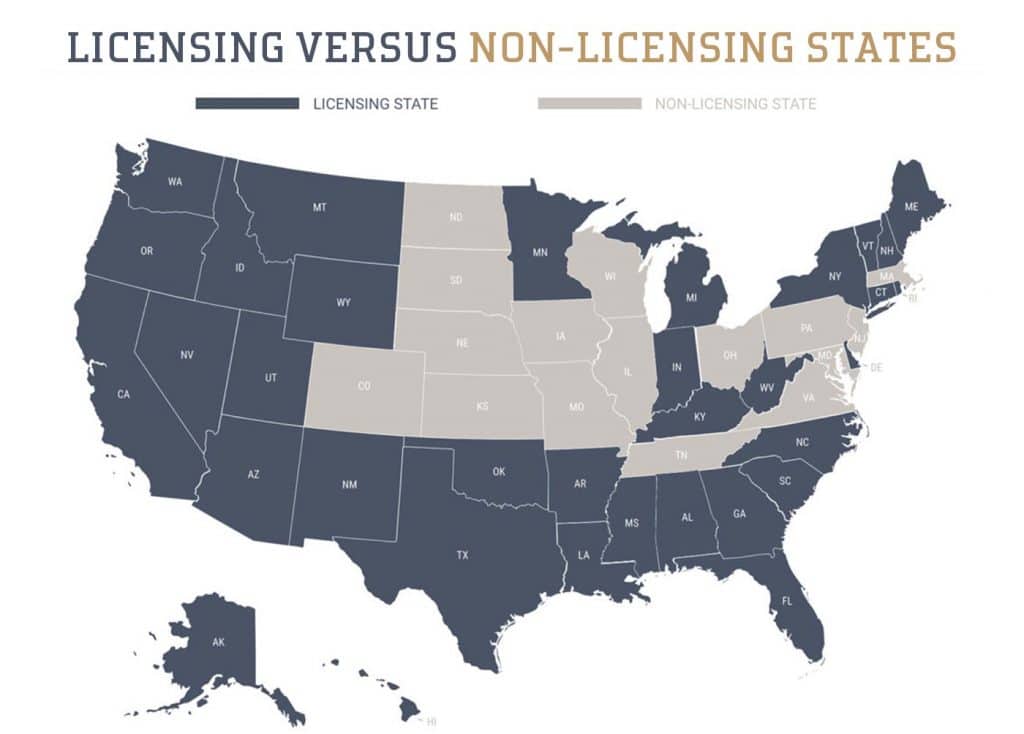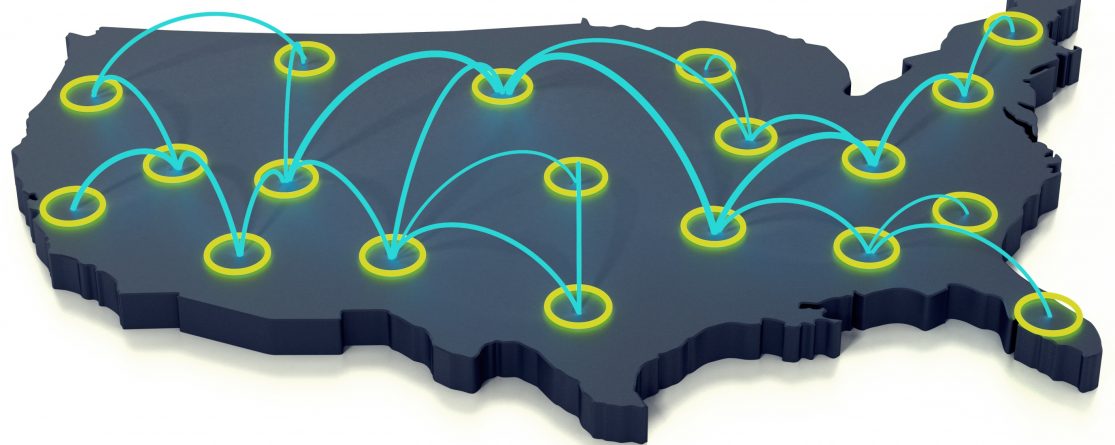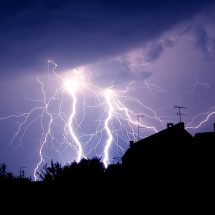For a new adjuster, what license to obtain can be confusing. We’ve seen folks miss opportunities because they weren’t sure about what license to get, or even worse, they got the wrong one (which can have some awful ramifications down the road.)We’ve done our best to simplify the licensing process and make things as clear and straightforward as possible.
For starters, some states require a license in order to legally adjust claims, and others do not. You can learn which states require adjusters on our interactive reciprocity map.

If you live in a state that does require adjusters to be licensed:
This is the bottom line; get your home state license. Forget well-meaning but incorrect advice such as “just get your TX license; it’s good anywhere.” That is no longer true. Today, most states require you to be licensed in your home state before they will grant you reciprocal licenses, so you must start there. Get your home state license, and then think about additional licenses (more on that below).
If you live in a state that does not require an insurance adjuster to have a license:
Here is where things start to get a bit more tricky. In nonlicensing states, you can legally adjust claims without a license. For example, if you live in Ohio, you do not need a license to adjust claims in that state. Same for you Kansas, Pennsylvania, Massachusetts…any of the states above in gray.
However, this is where the challenges arise. First, while you may be able to adjust claims in Ohio, you can not work insurance claims in any other state. And to be a successful adjuster, you really need to be able to work catastrophe claims in any of the states where they happen. (These events are where a lot of the big paychecks come from.) You also open yourself up to a whole host of opportunities when you can work anywhere and everywhere your employer may need you.
Think of it this way, when claimants submit a first notice of loss from anywhere other than Ohio, you aren’t able to work. Ultimately, adjusters with multiple licenses hold the most value to employers because they can help with claims from Ohio, Oklahoma, Mississippi, and California – sometimes all on the same day.
This leads us to the second point. For the reason listed above, many employers will only hire and/or deploy licensed adjusters. This isn’t absolute. But more and more, employers are requiring a home state or designated home state license to be considered.
Behind the scenes, the powers that be are pushing for uniformity in licensure throughout the country.
Although a single “national” license is not likely in the near future, measures are being taken to tame the adjuster license issue.
This is where DHS (Designated Home State) Licenses come into play. A DHS License offers a simple solution for a nonlicensing state resident. A DHS license allows the use of a licensing state to stand in as a surrogate for the adjuster to claim the equivalent of a home state or residential license.
Simply put, you are able to hold a DHS license in a state other than your own, and utilize it with the same reciprocal and claims handling privileges afforded to residents of that state.
Many states issue DHS licenses, but the most popular are Florida and Texas. Either state is a fine choice and will basically yield the same results for the strength and utility of the license. And both offer the big advantage of being available online through AdjusterPro. That means you can purchase our Florida or Texas products, complete the requirements, pass the test, and you are ready to apply. No additional testing or coursework is required. For most other states, you’ll have to go through a testing provider to complete the exam portion.
After you get your home state license or DHS license, then it is time to add other essential licenses to your resume, often through reciprocity. Reciprocity allows you to apply for other states’ adjuster licenses without having to meet their education and testing requirements. But again, this is something you can only do IF you hold a home state or DHS license to begin with.
What additional licenses should you hold? This depends on what type of claims you want to work and what employer(s) you want to work for. Our suggestion is to get to know your prospective employers; they will be more than happy to give you a list of state licenses that are important to them, based on the insurance companies they serve.
The claims industry is constantly in a state of flux, so it can be tricky to keep up with what to do, how to do it, or the best route. Licensing, on the other hand, is a constant, a solid foundation where every adjuster starts.
Bottom line, get your home state license, or if not applicable, a DHS license, and you will have taken a huge first step towards your adjusting career.
Have questions about licensing or adjusting careers? We can help. Call us at 214-329-9030 or email info@adjusterpro.com.



